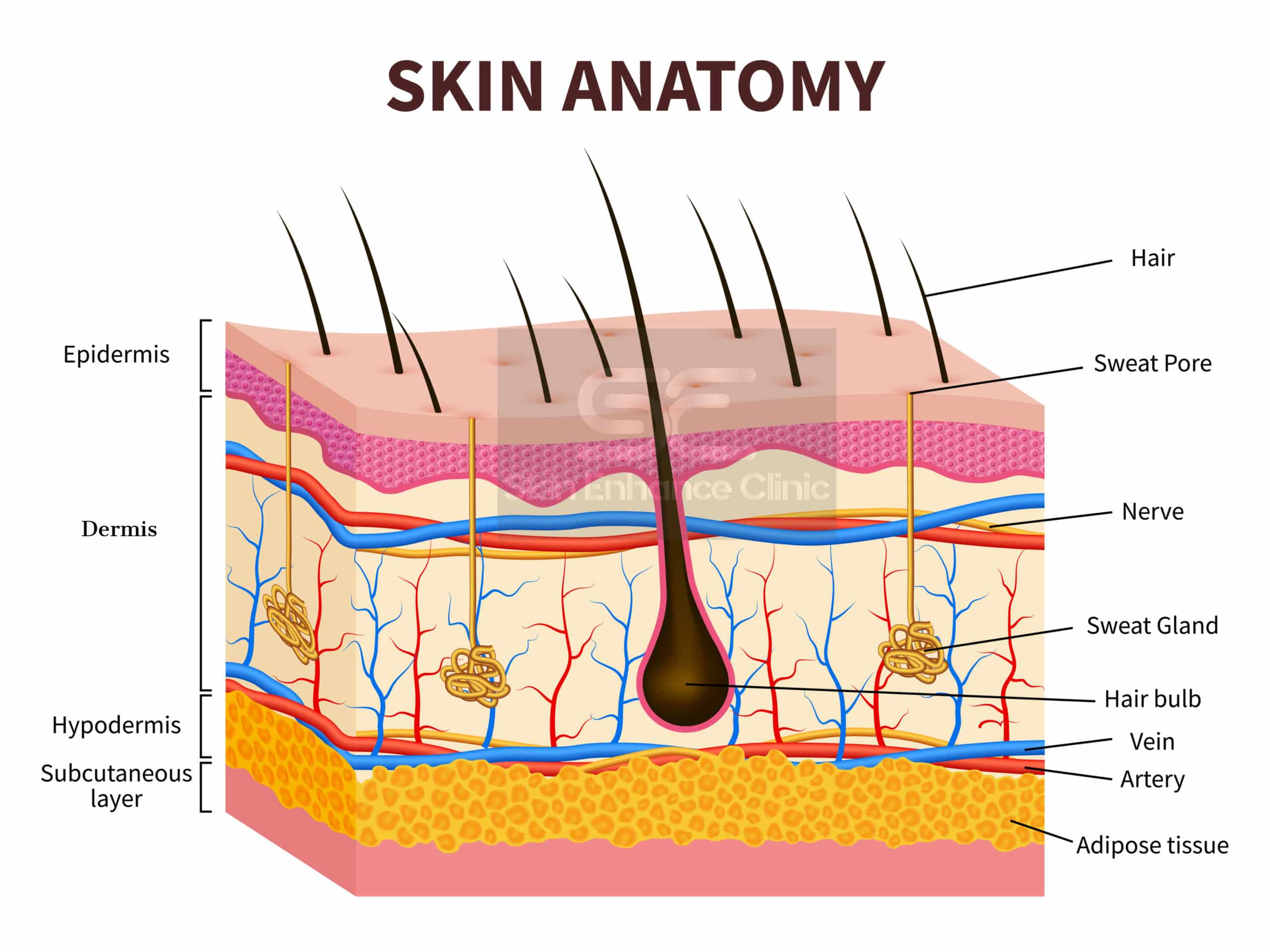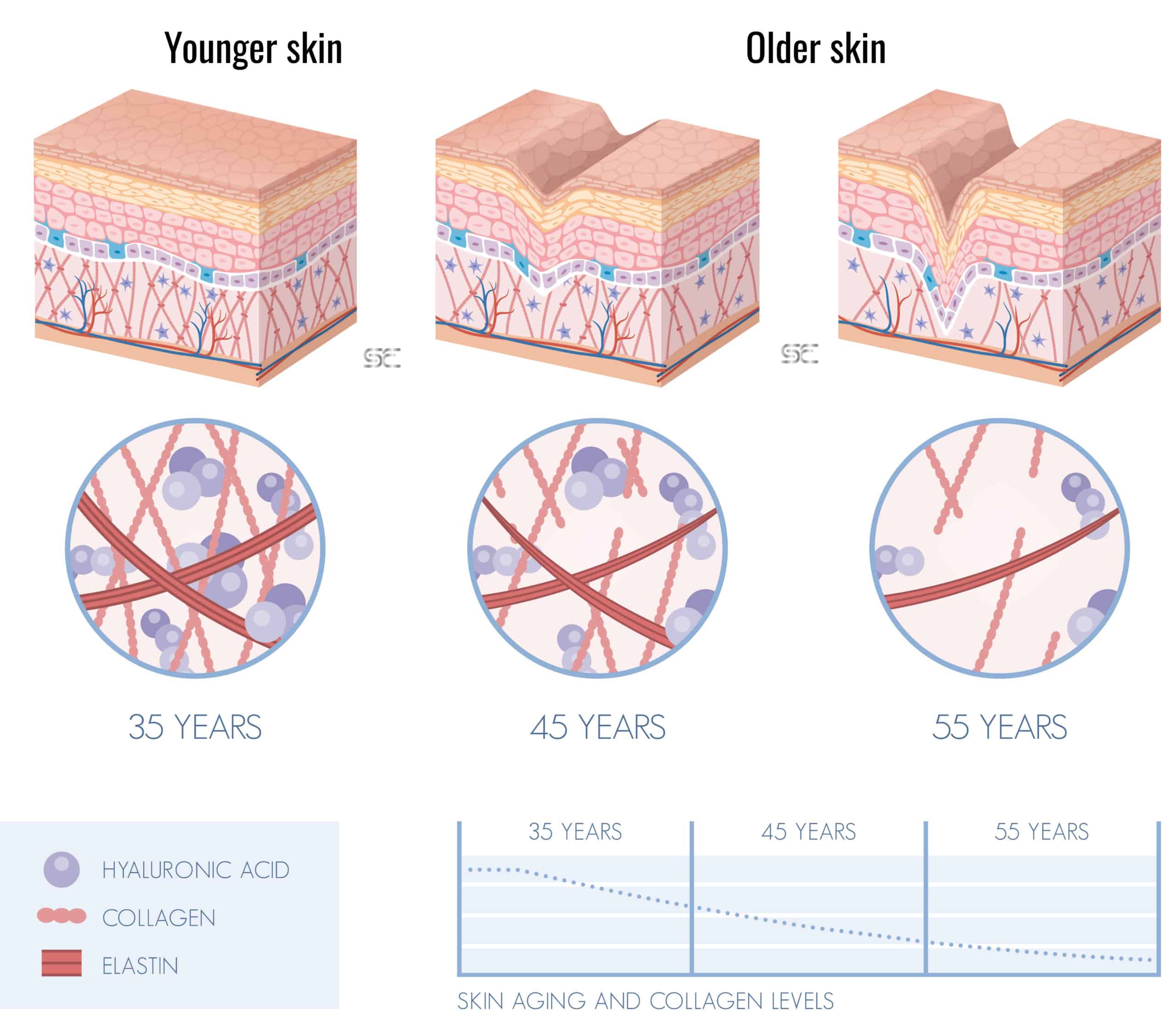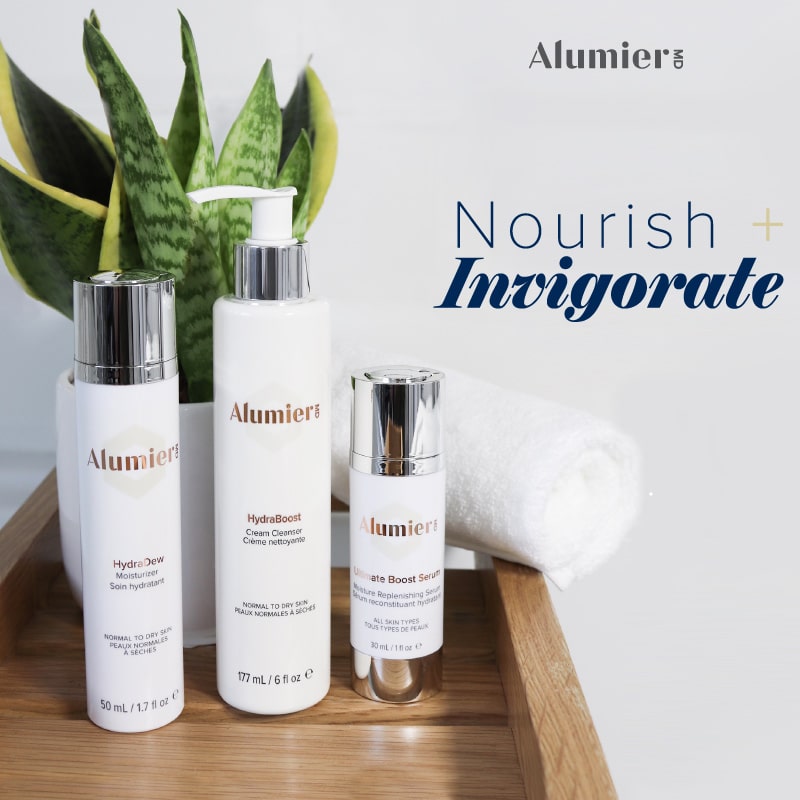Winter skin is a very common reason for skin consultations at this time of the year.
The seasonal changes can be harsh on your skin for a number of reasons. Firstly, sudden changes in temperature as we go from heated indoors to freezing temperatures outside can take its toll on your skin. Additionally, chilly winds can be physically harsh on your skin. The dry air in low humidity encourages moisture loss from the skin’s surface leaving it dry, dehydrated, and uncomfortable. The skin’s cell cycle also slows down in winter so that fewer cells are shed leading to the build-up of dead skin on the surface. This gives your skin a dull appearance.
Having hot showers robs your skin of moisture and natural oils. Air pollution levels and UVA radiation remain high even in winter contributing to the external insults faced by your skin. Internally, stress levels and hormone changes affect the skin’s ability to produce enough oil and maintain its hydration level.
A good hydrating home skincare routine combined with some in-clinic treatments can help you achieve glowing skin in winter.
Let’s look at the difference between dry and dehydrated skin.
Is your skin dry, dehydrated or both?
Your skin contains a balance of protein, oil, and water on its topmost layer to maintain its natural barrier function. When this barrier is healthy and intact, harmful substances are unable to penetrate in and there is no loss of water from the skin’s surface.
If this barrier is compromised by a disease process or wrong product use, the barrier is disrupted. Harmful substances enter the skin making it ‘sensitive’ and ‘irritated’. You also get water loss, called trans-epidermal water loss leading to dehydration.
Some people produce less oil resulting in dry skin. This is a skin type which means it’s more or less fixed. It can be exacerbated by hormones such as during menopause, women experience dry skin.

Moisturisers sold on the high street are composed of water, lipid, and protein which mimic the skin’s barrier but they are not the same as our skin. The overuse of moisturisers leads to the skin shutting down its own production of moisture, leading to dehydrated skin. If discontinued, the skin will re-start its natural role within a few weeks to maintain hydration.
Hydration for the skin comes from within. The dermis layer of the skin produces collagen, elastin, and hyaluronic acid. Hyaluronic acid is able to absorb many times its weight in water and provides hydration.
What happens to skin with ageing?
With ageing, the level of hyaluronic acid drops, and with this, the level of hydration also diminishes. Consequently, your skin loses its plumpness and develops wrinkles (see below). Additionally, with

Dry skin, Dehydrated skin, Oily skin, or Combination skin?
- Dehydrated skin is due to reduced hyaluronic acid or a compromised barrier function.
- Dry skin type occurs when a person does not produce enough oil. They may get dehydrated skin at certain times.
- Oily skin type produces excess oil. Your skin may become dehydrated if the moisture level drops.
- A combination skin type occurs when you produce enough oil in certain zones such as the T-zone but less in other areas.
Why use medical-grade skincare like AlumierMD ?
There are many advantages to using a medical-grade skincare range compared to a high-street brand.
Most high-street cosmetic products claim to contain hyaluronic acid but there’s a problem with absorption. As these are large molecules, when applied on the skin surface, they cannot penetrate deep into the dermis. Instead, they stay on the surface giving superficial hydration only. Once the cream is discontinued, the effect also ceases, and the skin goes back to its original dull, dehydrated state. The active layer of the skin, the dermis, is not changed as it does not recognise any change has occurred. Consequently, the effects of these products are temporary and do not provide sufficient hydration to your skin.
Hyaluronic acid, when used in medical-grade products, are smaller molecule. Hence they are able to reach the dermis layer and provide plumpness to the skin.
AlumierMD uses a peptide called Matrixyl™ synthe′ 6™. Firstly, the ingredients are of high enough potency to influence your skin. Secondly, the peptide being much smaller than the hyaluronic acid molecule, can easily reach the deeper layers. Most importantly, it brings about significant changes to the skin at the cellular level. It activates the synthesis of multiple major constituents of the skin such as collagen, elastin, hyaluronic acid, fibronectin, and laminins. Conversely, peptides used in high-street products do not have the correct percentage to exert any clinically significant effect on cell function.
By harnessing the power of incredible ingredients and delivering them in clinically significant percentages, AlumierMD helps you achieve healthy glowing skin with simple skincare routines. The formulations are produced in innovative bottles that keep the ingredients fresh for each use. AlumierMD skin care
AlumierMD hero products that can support winter skin.

HydraBoost Cream Cleanser
HydraBoost is a smooth, hydrating pH-balanced creamy cleanser for dry to normal skin types and is ideal for winter skin. It delicately removes impurities, excess oil, and makeup without stripping hydration. The natural cleanser yucca seed extract gently cleans your skin. Vitamin E, sunflower seed oil and argan oil moisturise, leaving your skin smooth, soft and intensely hydrated.
Ultimate Boost Serum
This is a lightweight serum that boosts hydration and enhances the skin’s natural hydrolipid barrier with sodium hyaluronate and niacinamide. MATRIXYL® Synthe’6® strengthens your skin and reduces the appearance of fine lines and wrinkles. Perfect to use as a booster under your moisturiser at night or under your sunscreen during the day.
HydraDew moisturiser
HydraDew is an intensely rich formula that moisturises, nourishes, and improves skin texture for those with dry skin. It combines ingredients like sodium hyaluronate (hyaluronic acid), shea butter, aloe, and niacinamide. Harnesses powerhouse peptides to firm and strengthen the skin, reducing the appearance of fine lines and wrinkles, while antioxidants provide protection from free radical damage.
Using a combination of all three products potentiates their benefits and nourishes your winter skin.
Clinic treatments to aid winter skin
AlumierMD Medical skin peels are ideal to have in winter to deeply exfoliate dead skin and reveal healthy glowing skin. Chemical peels are essential for skin rejuvenation to help improve radiance and skin luminosity as new layers of skin are revealed.
I would recommend the Aqua infusion mask and Deep moisture mask for winter skin.
The Aqua infusion mask is an oil-free, lightweight mask suitable for all skin types. It maintains hydration up to 72 hours after use making it an ideal pre-skin peel mask to maintain hydration after the peel.
The Deep moisture mask is ideal for dry, sensitive and irritated skin to add lipids to your skin.
Both masks can be combined in a single treatment if required.
In summary, AlumierMD offers products for every skin type. All the products have been created to work synergistically with each other and with home care and in-clinic treatments. They do not use parabens, perfumes, dyes, or sulfates in any of their products. Skin Enhance and Wellness is an authorised distributor of AlumierMD products and personal recommendations are available after a consultation.
To find out which products are suitable for you and to start your AlumierMD journey this winter, please book a skin consultation.


Recent Comments